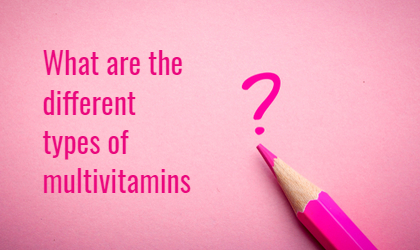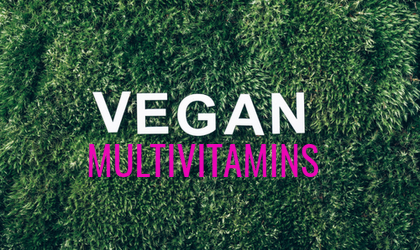
Although we advocate getting all of your nutritional goodness from food, sometimes, it’s just not possible. The fast pace of modern life, ever-increasing daily demands, pollution, soil nutrient depletion, and toxin exposure are just some of the reasons why hitting each nutritional note every day can be challenging.
And that’s where multivitamins come in. Multivitamins aren’t designed to be a surrogate for healthy eating; they simply serve as a nutritional buffer to plug any gaps in your diet.
But as our nutritional needs change throughout our lives, so too do the multivitamins we take. And for many people, supplementing with an iron-free multivitamin is the most appropriate choice for their life stage and nutritional requirements, especially because, for some, taking additional iron might not be necessary.
What happens if I take too much iron?
Taking more iron than required can lead to digestive imbalances and cause discomfort, so it’s important to stay within the recommended guidelines. With that in mind, here are some of the reasons why you may consider choosing an iron-free multivitamin.
You’re a postmenopausal woman
Young women need more iron to account for the iron lost through menstrual blood each month. During a woman’s bleed, she loses around 1mg of iron. To prevent iron deficiency anaemia – a condition characterised by tiredness, pale skin, and heart palpations – women between 19 and 50 need 14.8mg of iron daily.
Once a woman reaches menopause – and all menstruation ceases – her iron needs drop to 8.7mg, which is often covered by diet alone unless she’s following a plant-based regime. That’s why choosing an iron-free multivitamin often makes more sense at this age.
You take another specialist product that contains iron
Supplementing with an iron-free multivitamin is an excellent choice for those taking another specialist product that contains iron, like NutriHair®. This formula has additional iron to support hair growth in women aged 18-50 who experience increased hair shedding or chronic telogen effluvium (CTE).
You have a sensitivity to supplemental iron
Though uncommon, it’s also possible that some people may have a sensitivity to iron, making an iron-free multivitamin a more appropriate choice.
Sensitivities to supplemental iron may include:1
-
Abdominal or stomach pain
-
Constipation
-
Nausea or vomiting
-
Dizziness
-
Headache
-
Metallic taste
-
Chest pain
-
Increased heartbeat
Although marketed for the over 70s, Multi-Max® 70+ is an iron-free formula with great overall nutritional coverage, making it an excellent choice for anyone who wants to avoid supplemental iron.
Still unsure whether an iron-free multivitamin is the best option for you? Please reach out to one of our expert Nutrition Advisors, who are always happy to offer free, confidential advice.
Aside from an iron-free multivitamin formula, you may also consider taking an iodine-free multi. You can find out more in this article.
Related Posts
Disclaimer: The information presented by Nature's Best is for informational purposes only. It is based on scientific studies (human, animal, or in vitro), clinical experience, or traditional usage as cited in each article. The results reported may not necessarily occur in all individuals. Self-treatment is not recommended for life-threatening conditions that require medical treatment under a doctor's care. For many of the conditions discussed, treatment with prescription or over the counter medication is also available. Consult your doctor, practitioner, and/or pharmacist for any health problem and before using any supplements or before making any changes in prescribed medications.

Keri
Keri Filtness has worked in the Nutrition Industry for 19 years. She is regularly called upon for her professional comments on health and nutrition related news. Her opinions have been featured by BBC3, Prima, Vitality, The Mirror, Woman’s Own and Cycling Weekly, amongst others. She has also worked one to one with journalists, analysing their diets and health concerns and recommending changes and additions, where appropriate.






